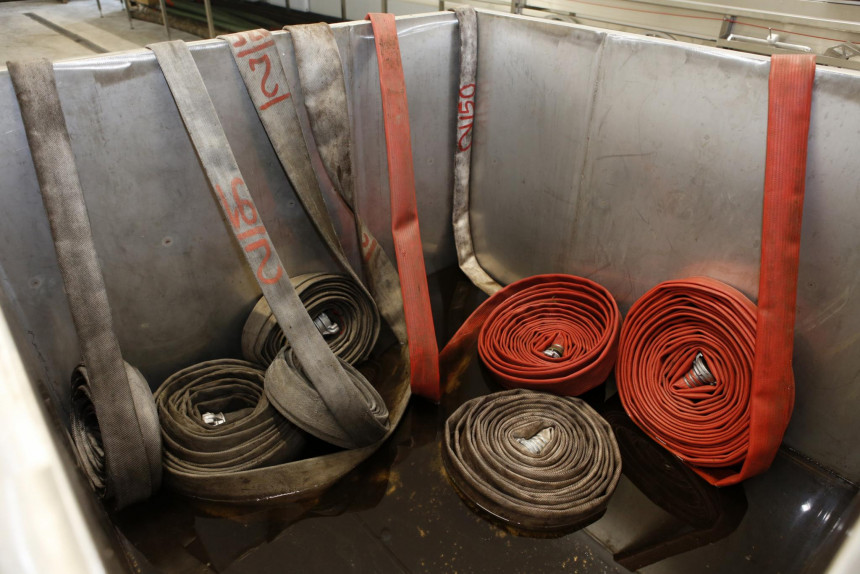Firefighter: Every new government should be thrown into a bunker to study

For the Latvian state to be more prepared for various crisis situations in the future, each new composition of the Cabinet of Ministers should undergo special courses that would give an idea of how the current regulatory enactments regulate the state's response to a crisis situation. Special communication courses to teach politicians how not to act would also be useful.
These findings stem from the guests invited to a meeting on Tuesday by a parliamentary commission of inquiry looking into the crisis management of the Covid-19 pandemic.
Deputy Head of the State Fire and Rescue Service Mārtiņš Baltmanis, based on the experience of the first wave of Covid-19, expressed the opinion that each new Cabinet should take courses in which they learn the basics of how different crisis management algorithms work - who and in what order must make decisions, who is responsible and for what.
"When a new government takes office, they should be thrown into a bunker for a week or two and told about all of these algorithms so they know how they work.
[..] It is not the services that can decide on any restrictions, it is up to politicians,” says M. Baltmanis, who chaired the crisis management council in the first wave of the Covid-19 pandemic.
He also told that state-level civil protection exercises are organized every four years, but so far the composition of the Cabinet of Ministers has not been included in them. In the next training, which is planned for the autumn, they can still manage to add them.
Meanwhile, according to the vision of the Director of the State Chancellery Jānis Citskovskis, it wouldn't hurt the members of the Cabinet of Ministers to learn the basics of crisis communication, as the experience so far shows that the lack of such skills undermines public confidence in government decisions.
“Last spring, everyone enthusiastically listened to Dumpis and Perevoščikovs [Jurijs Perevoščikovs, Director of the Infectious Diseases Risk Analysis and Prevention Department of the Center for Disease Prevention and Control, and Uga Dumpis, Pauls Stradiņš Clinical University Hospital infectologist and University of Latvia professor], but in the autumn, in the winter, everyone already felt smarter than them. In this situation, it is very difficult to manage a pandemic. All the more so if there is no unanimity in the government and if there is even opposition from the Saeima, the process becomes very complicated and torn by contradictions. Public communication can also undermine public confidence in the state. If there are different messages every day, it makes crisis management a nightmare,” recalling the various messages of the government and the Saeima about the beauty industry, said the head of the State Chancellery. A similar example was the different views of the government and the Saeima on the operation of outdoor terraces.
In addition to the above-mentioned, necessary improvements for the preparation of the state for crisis situations, M. Baltmanis also mentioned the involvement of volunteers, especially in the context of non-governmental organizations. He also stressed that the establishment of an accredited laboratory where the quality of personal protective equipment could be tested should be completed. In his opinion, the involvement of experts is also important. Consideration should also be given to setting up a Civil Protection Operational Management Center. "It is not very good to make the Director of the State Chancellery lead some kind of inter-institutional group. We see that it could be developed on the basis of SFRS,” says M. Baltmanis.
